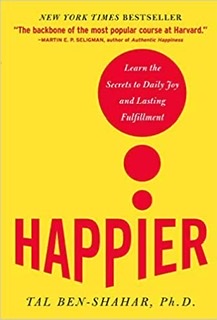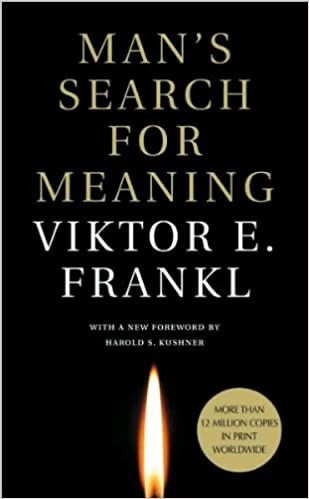
Dr Ben-Shahar is one of the most popular teachers at Harvard. His book includes the concepts from his Harvard’s course on Happiness. One out of five students at Harvard line up for his Happiness course. This book tries to answer the following questions; How can a person be both successful and happy? How can ambition be reconciled? Is it possible to defy the maxim of “no pain, no gain”? The book combines the principles from Freud (man is driven towards pleasure) and Frankl (man needs a meaning for his life). Please read summary of Man’s Search for Meaning and concepts from the book Flow (Read the summary from happy books review).
The book classifies people by the way they reconcile present and future into 4 types:
1: Rat Racer-People who focus on the future destination then the present journey. They briefly enjoy when they reach their goal but day to day journey towards the goal is difficult to them. In schools these are the people who are worried on grades rather than understanding the subject. They never enjoy the process of learning. Once the graduation is done they‘ll not go back to reading. During jobs they’ll drag themselves to work and complain on the work daily. For example, Monday’s are terrible for them. Their focus is on future promotions but not enjoying the present engagement. The temporary relief they feel on finishing a job is mistaken as happiness.
Hedonist: A hedonist always focuses on the present. They will do tasks detrimental to them in the long run, if it gives them pleasure in current moment. Since their goal is not meaningful in the long run, without long term purpose Hedonists will be void of happiness. People who use drugs for current happiness will fall into this category.
Nihilist: A Nihilist believes that there is no meaning in life. He either enjoys journey or destination. He believes whatever he does, cannot change his happiness.
Happy Person: These are the people who enjoy the journey along with destination. They have a well defined meaningful goal and take pleasure in daily tasks that take them to the goal. A happy person choses meaningful goal in accordance with his own values and passions rather than confirming to others expectations. A happy person defies “No pain, No gain formula”. He enjoys the journey and dedicates himself to purpose he believes and attains a better outcome.
Practical tips for increasing current happiness:
Just because an activity provides us with meaning and pleasure, it does not mean we can be happy doing it 24 by 7. It may bore if you continue indefinitely on one activity (e.g. eating your favorite food all day everyday). Paying attention to the quality of inner experiences is helpful.
Identify the meaningfulness and pleasure of each activity on a scale of 1-5 along with current time you are spending on weekly basis. Identify if you can increase or decrease the time spent based on meaningfulness and pleasure.This will help you to allocate time wisely for meaningful and pleasurable tasks.
Generally we make decisions based on which of them will give us more materialistic returns. The key is to identify happiness as our ultimate currency and making decisions based on which one leads to more happiness. Identify and set the goals which are meaningful to us. The goals should also give us pleasure when we pursue them. Goals which give us personal growth and a sense of connection to others provide qualitative difference than goals that give us material goods.
Application in Kids education:
In the current system students are motivated by their fear of failure. Before the time students are ready for job they have internalized rat racers ethos. They learn from parents that grades and prizes are measure of success rather than enjoying learning for knowledge sake. Educators and parents should first believe themselves that happiness is ultimate currency. In school, children should be encouraged to pursue the paths that afford them pleasure and meaning. Parents and teachers should create environment of “flow” (please see summary of “flow” in this blog). There is prejudice against work in children’s minds as young as 12 year olds. Even though we have optimal experiences in work , kids prefer leisure because of prejudice they have against work. Kids should be educated that working towards meaningful goals provide optimal experience. Reframing education as privilege than a duty will drive the children to ultimate currency “Happiness”. Teaching the children not to squander away the free time by challenging them with meaningful work will increase their happiness.
Application in work:
Answer the following questions:
1: What gives me meaning? In other words, what provides me with sense of purpose?. Answers to this will identify your life calling
2: What gives me pleasure? In other words, what do I enjoy doing? The responses will identify your micro level activities on day to day level.
3: What are my strengths?
Finding the activities that fit in all the three questions above will help in identifying both macro and micro level paths ( goals and tasks).
Removing the prejudice against work in our subconscious, Realizing the truth that work has potential of creating happiness all around us, A change in perception of looking at job as calling will make a significant difference in happiness level at work.
Application in relationships: Relationships are important for the ultimate currency Happiness . Having people whom we care and who we care about us to share our lives intensifies our experience of meaning, consoles our pain and deepens our sense of delight in the world. Nothing beats life long long companionship with ones best friend.
Core self: It comprises of actual principles by which we live, which are not necessarily synonymous with the ones we claim to follow. This manifests through the person’s behavior, which is observable.When we say we love a person unconditionally it is for his core principles, if we love for their money or power it is loving conditionally. Finding a person who loves for our core principles is key to happiness. It provides both meaning and pleasure .
The knowledge that we are loved unconditionally creates psychological space of safety and security. Unconditional love is the foundation for a happy relationship. This creates a equitable relationship where each partner pursues their meaningful goals and help each other. A equitable relationship does not sacrifice one’s passions for others. In long term for the relationship to flourish the focus should change from desire to be validated seeking approval and praise- to the desire to be known. Engaging in activities that are meaningful and pleasurable to ourselves as well as to our partner is the key. Focusing on meaningful and pleasurable past experiences in a gratitude letter fortifies the relationship overall.
